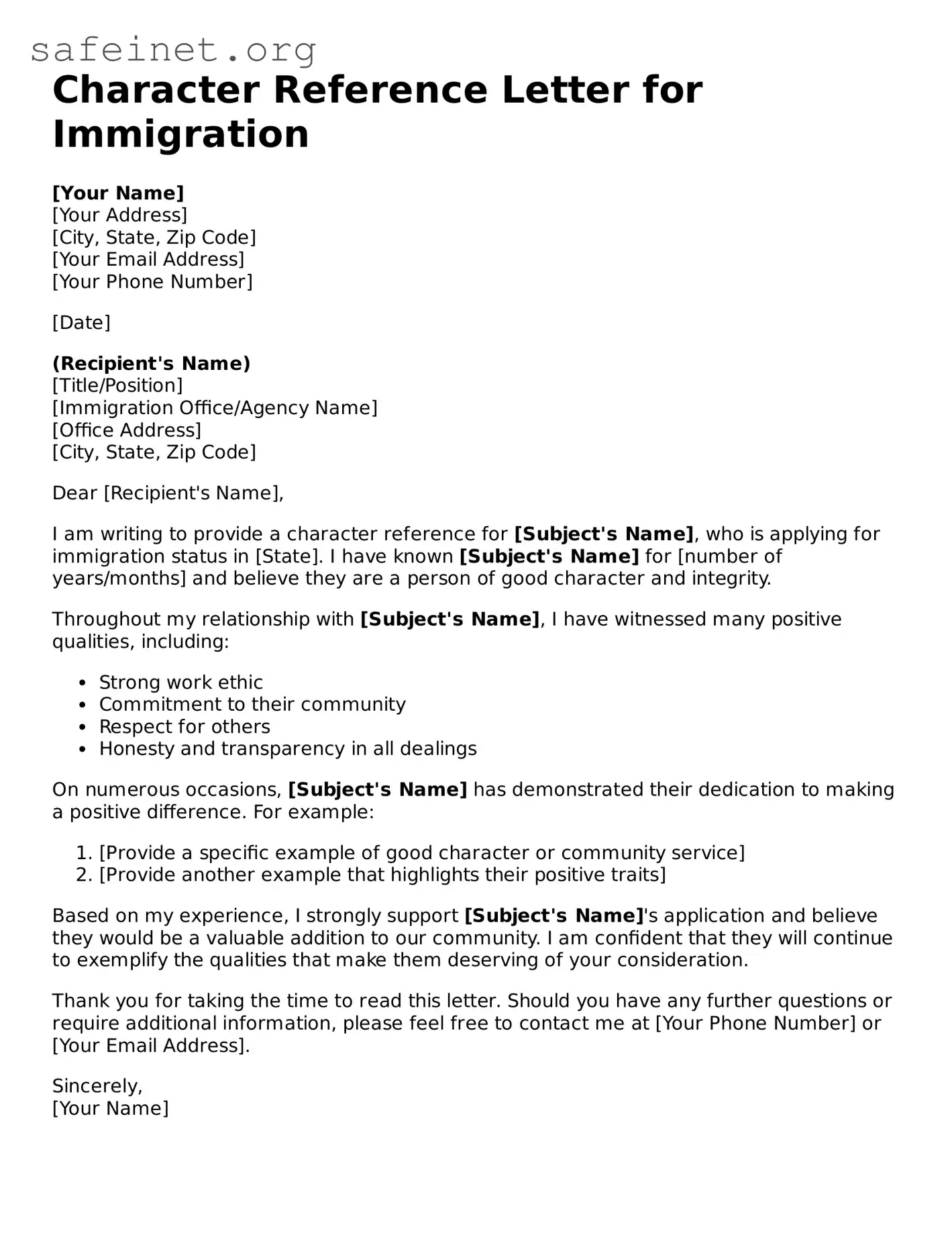A Character Reference Letter for Immigration is akin to a Personal Reference Letter, which provides a testament to an individual's character and integrity. This document is commonly used in various contexts, such as job applications or renting a property. Both letters typically include specific examples of the individual’s positive traits and behavior, emphasizing the trustworthiness and reliability of the person being referenced. In both cases, they serve to support the individual’s reputation by outlining their contributions to the community or workplace.
Another similar document is the Employment Reference Letter. This type of letter is provided by a former employer to vouch for a candidate’s skills, work ethic, and reliability in a professional setting. Like the Character Reference Letter, it often includes anecdotes or examples that highlight the individual's accomplishments and positive attributes. Both types serve to bolster an individual’s standing either for immigration purposes or job prospects, making the case for their suitability in a new environment.
The Academic Reference Letter shares similarities with a Character Reference Letter by providing insights into someone's character from an educational perspective. This document is usually penned by a teacher or professor who can confirm the student’s capabilities, work ethic, and contributions in an academic setting. Just as with the immigration letter, this letter focuses on personal qualities, helping to create a holistic view of the individual as a candidate for further education or residency.
A Good Moral Character Affidavit is another closely related document. It is often used in legal scenarios to establish that an individual maintains good moral character, particularly in legal matters such as immigration applications. Both documents highlight similar qualities like honesty, integrity, and community involvement. The key difference lies in the formal legal context of the affidavit, which often requires a notarized statement, while the character reference focuses more on personal testimony.
A Recommendation Letter for Volunteering also bears resemblance to a Character Reference Letter. Volunteers often need to demonstrate their character and commitment to community service when applying for new positions. This letter highlights a volunteer's dedication, teamwork, and the impact they've had in a community or organization, akin to how a character reference outlines the individual's civic involvement and ethical standing.
The Sponsor Letter for Immigration is another document that shares common elements. A sponsor letter demonstrates support for an immigrant’s application and outlines the responsibilities the sponsor will undertake, which often includes a character endorsement. Both letters stress the individual's good standing and reliability, playing a crucial role in the immigration application process by affirming the applicant’s qualifications and character to live in a new country.
An Invitation Letter, often used for visa applications, resembles a Character Reference Letter in that it seeks to establish the credibility and intent of the inviting party. These letters generally affirm the relationship between the invitee and the host and may touch on the character of the guest. Both documents aim to alleviate concerns of immigration authorities about the applicant’s legitimacy and trustworthiness.
Lastly, a Support Letter for a Grant Application serves a similar purpose by offering a character evaluation of the grant candidate. Funders often look for testimonials that underscore the trustworthiness and competence of applicants. Like the Character Reference Letter for Immigration, these letters typically highlight the applicant’s qualifications while also pointing to their ethical and professional attributes, thereby bolstering their case for receiving assistance.
